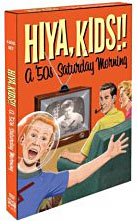
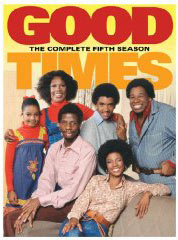
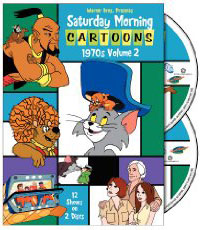
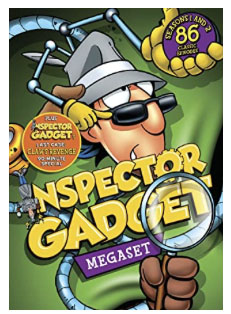
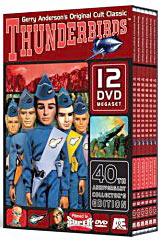
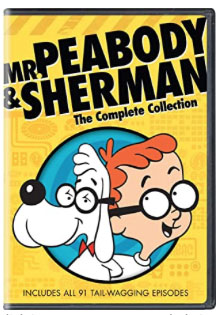
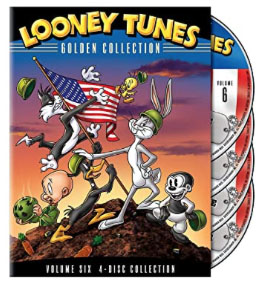
 |
 |
 |
 |
 |
 |
 |
|
TV
Shows on DVD/ / / /
/ / / Punk Book/ /
/ / / / / Punk Book/ / / / / / / Holiday
Specials on DVD / /
/ / / / Classic
Commercials / / / / / TV
Shows on DVD Reviews |
|||||||
|
PART FOUR : by L. WAYNE HICKS
A: No, not immediately. I came on in a sports jacket. I looked very incongruous because Bob was in a ringmaster’s outfit, not quite the Buffalo Bob outfit, but a ringmaster’s outfit. It had a circus format. And I didn’t look as though I fit in that format so they decided to make a clown out of me. They made a clown suit. Dick Smith, who became a brilliant makeup artist for the movies eventually, was doing makeup and he created the makeup. I went to the library and did my research on clowns. That’s how he became to be a pantomime clown. Classic clowns were pantomime. I did a lot of research on things and created the character, as we knew it. The mail indicated that he was tremendously popular and the writers started writing material for him, the seltzer bottle and the mischievous tricks and so forth, and there you go. I spent five years as Clarabelle. Q: What did you learn from Buffalo Bob about doing television, or about doing live television? A: Almost everything I know. Now don’t confuse the live television and the technical aspects of it, all of which I learned from Bob Smith, with the philosophy. I mean, there couldn’t be two philosophies as different as Bob’s philosophy and mine. We looked at children in a totally different way. But as far as learning the craft of television and the timing and comedy, all of that sort of thing, Bob taught me everything. He was an absolute master at it. I owe him everything I know about it. Some years later, of course when we were doing the Captain live and people would marvel at how I would be able to be on camera for five minutes and know that I was on camera for five minutes and not 4 minutes and 30 seconds or 5 minutes and 15 seconds. I was a master at timing. That I learned from Bob. So I owe him all of that. Now that’s the craft of television. I don’t want you to misunderstand me and say I learned my programming philosophy from Bob. Not at all. Q: What was the difference between your philosophy and his philosophy? A: Bob was much more the conventional. "Kids, what time is it? "It’s ‘Howdy Doody’ time." Shouting, loud, fast-moving, very little reference to the education of the child. Bob’s idea of education was to sit at the piano and say, "You cross the street with your eyes, not with your feet." And that was fine. There’s nothing with that. But he certainly wasn’t pro-education as far as it was concerned. He just felt that he was there to entertain, which is a fine philosophy. There’s nothing wrong with it. Except I felt education and entertainment combined could be of a greater service to young people. Q: What happened that made you decide to leave the show? A: We had a disagreement. A whole bunch of us, five of us, who were actors on the show. We hired an agent because we wanted to do other work other than "Howdy." And the "Howdy" group was a little insecure. They thought we were hiring an agent to form a union to negotiate against them. Of course, we had given specific instructions to our agent that he was not permitted to negotiate our "Howdy" matters. He was there only to get us work other than "Howdy," that we couldn’t make ourselves the lead. One day we were told we were no longer needed.
A: I went on to do an interim show called "Time for Fun," which was a clown show, on the local ABC station. And then a year later "Tinker’s Workshop," which was a direct antecedent of the Captain. Q: Were people approaching you about these shows? A: Absolutely not. I went nine months looking for work. I was about ready to go into the insurance business or whatever because I had a young son and my daughter was on the way. We were destitute. We were in dire straights. I just kept making the rounds and making the rounds and just by luck the WABC program manager said that they were going to try doing a show here in New York that was being done in Chicago that involved a clown at lunchtime and would I be interested. Would I be interested? I practically went across his desk. So that was my first break. I was out of work nine months before that program came on. "Time for Fun," the noontime show, it was a clown character, this time a talking clown. It turned out to be very successful. It was the direct antecedent of "Tinker," which preceded "Captain." Q: How long did these two shows last?
Q: What parts of "Time for Fun" and "Tinker’s Workshop" translated into "Captain Kangaroo"? A: You use something that you used successfully before so what you do at any point in a career is an amalgam of everything that has preceded you. It’s much easier to make a direct connection between "Tinker’s Workshop" and Captain Kangaroo because Tinker was an elderly man, Tinker was on at that hour of the morning. Tinker talked gently to children, but so did the noontime show, "Time for Fun." So there was a line, a transition from each show to the other. Q: People don’t always remember this, but you were also the Town Clown on "Captain Kangaroo". You kept up with your clowning. A: Sure. That comes from my heritage of Clarabelle and being a clown on "Time for Fun." It was a difficult thing to do. We could only do it once we got to using tape seriously because it required so much amount of makeup, which would have been impossible live in those days. There wouldn’t have been any time. It literally was almost an hour of makeup and costume and of course that couldn’t be done on live television. But once we started to tape the program then we were able to take an afternoon of production and get me into makeup and costume and do maybe five or six, 2, 3, 4-minute sequences, which were then edited into the program. Q: I know the name Kangaroo came from the large pockets in the coat you wore. But which came first, the coat or the name? A: Well, the coat probably. But it really doesn’t matter all that much. It seemed at the time of "Howdy Doody," "Rootie Kazootie" and the like that alliteration was a value. It wasn’t a big deal. We didn’t even make that much of it. But yes, we liked to be alliterative and so he had this pockets and we thought similar to the pouch in a kangaroo. And of course captain matching kangaroo was an alliteration and that’s about as much thought that went into it. It really had no meaning until many years later people thought there must have been some magic to arriving at that name. None at all, really. Q: CBS approached you and said they wanted you to do a children’s show for them. Is that how it worked? A: Well, CBS wanted to do a children’s show at that hour. When I came on with "Tinker" and was doing well on WABC, our local ABC station, at 8 o’clock in the morning, somebody [at CBS] said hey there is an audience there. Knowing this, they wanted to do children’s in the morning. And so they invited me to put together a pilot. They also invited four other producers to put together a pilot. They looked at the five pilots and chose the "Captain." Q: They didn’t come to you with the idea? A: Oh, they came to me with nothing. In fact, I remember very clearly that the producer who was in charge, the vice president in charge who said, "You want a set? We’ll get you a set. You want costumes? We’ll get you costumes? You want this? We’ll get you that. But just do me a favor. Don’t ask me what to do." That was the extent of their contribution. Which was fine. We appreciate that and we simply went ahead and did our thing. As it turned out, the program people and Mr. Paley and Dr. Stanton and all of those people who were making the decision liked it very much. It was their kind of program, much more so than Jerry Colonna. Jerry Colonna was one of the other pilots and he was kind of brash and loud and so on. CBS liked our approach to children. Q: What makes good children’s television? A: What makes good adult television? I really can’t answer a question like that. Children are not monolithic. Children come from diverse backgrounds. Not only ethnic backgrounds and cultural backgrounds. This is a nation today more than ever of immigrants. We have children in our society who are from Mexico, from Central America, from Puerto Rico — I know it’s American but it’s essentially a different culture — from Vietnam and from almost anywhere you can name. Then you have different sets of circumstances that children experience. Do I have a mother and a father? Do I have just a mother? Do I have just a father? Do I never see my father? Do I not know who my father is? Is my grandmother the principal caregiver in my life and my principal guide? All of these vast and different backgrounds presume different needs and different likes. Q: So there’s no one size fits all. A: Exactly. It doesn’t work. It doesn’t work at all. Q: Did you have any inkling you’d be spending your career entertaining children? A: No. I was going to be a lawyer. God, weren’t we lucky. I really have always felt that the bar association owes me a letter of gratitude. Q: Can you conceive of how people's lives would have been different if you had kept up with your studies of law? A: Well, I think the bar association has owed me a letter
of gratitude for many years but they never sent me. I think that I've
made a contribution. How to measure it quantitatively? I don't know. I
think that's relatively impossible to do. Q: It’s hard to picture you as either a lawyer or a Marine. A: I had a brother in the Army Air Corps, long before the
Air Force was founded. He was a navigator. Then I had another brother
who was a Naval officer, a supply officer. So I thought, Army, Navy. Only
thing left for me and that’s Marines. So I went into the Marines.
It’s all they say it is. Parris Island is not a nice place. But
it was good training. It taught me things. It taught me discipline. Q: I don’t suppose you made captain in the Marines? A: Me, a captain? Oh, no way. PFC was the highest I ever got. They dropped the bomb when I was in boot camp, so that ended any threat to me. I then spent my life running around closing schools, literally. They would send me to Japanese language school and I’d be there for six weeks and it occurred to somebody they no longer needed interpreters because that was all over with. They sent me to signal school and they decided they didn’t that anymore. I spent a year or so after boot camp closing down schools that had been very active. And then finally said, "Oh, we don’t need you anymore. Here you go." It was a good experience. Q: Your show was on during a time during great social change in this country. Do you think your show served as a stabilizing force? A: I think that’s a good way to put it. That’s what we thought of ourselves as. There was no way in the world that we could deal with those very complex issues in terms that a 4-year-old would appreciate and understand, without risking all kinds of insecurities being given to the child. This is a dreadful world that we live in and what is important for a young child is stability. A young child likes routine more than anything in the world. Routine is tremendously important to a young child. The security of the home. The security of a room that they like. Going back to the basics. The security of a blanket. These things are very important to us, to a young child. Q: What were your parents like? A: Oh, I had a wonderful mother. My father was so busy. I came to love my father dearly as I grew older and I came to appreciate him more. When I was a young kid, he was out of the office at 5:30 in the morning and back at 8 o’clock at night. He worked like crazy. Q: What kind of job did he have? A: He was a supervisor for a grocery chain. In those days, they were all small stores, not supermarkets. This is in the 30s I’m talking about. He was a vice president of the company and he traveled. He was in charge of all of Long Island, which was like 300-some odd stores. He would visit them. He would be in his automobile, go to his office, then get back in the automobile. The poor man worked and worked and really worked. But I had a mother who was absolutely imaginative. She was not educated well. She had not gone to college. But she was a mother. She knew what mothering was. She was instinctively a mother and she knew what children needed. She knew the love that children needed.
A: No. She actually supervised my radio listening, strange as that may sound, because we think of radio as kind of an innocent age, but she didn’t like some of the stuff she heard. She didn’t like "Gangbusters" that much. And she was worried sometimes that some of the adult dramas, the "Lux Radio Theater" and so on, had material that was inappropriate to me when I was 7 or 8 or 9 years of age. I was a radio buff. I loved radio. I knew all the characters. I knew the directors and the producers of radio shows. Q: You paid attention. A: Oh, sure. Absolutely. But my mother was careful. She intervened, in radio. Q: Was radio your preferred form of entertainment or were you a big reader as well? A: Oh, I was a big, big, big, big reader. I read much more than I listened to radio, but I was fascinated by radio. I found it to be a lot of fun and I liked the shows. I was just a fan of radio, really, but I was a very big reader. In the summertime I would take care of people’s animals when they went on vacation. I would feed the dogs and take them for a walk and that sort of thing and when they returned I got paid not in money but in books. The people knew me, they were all neighbors, and they would give me various books for me to read and that to me was my great pleasure.
A: Well, I think it’s basic, I think it’s basic parenting, a basic part of raising a child is to read and to be intimate with the pleasures of reading. Q: When you were doing the show, would you rather have seen a child spend an hour reading a book or a child spend an hour watching "Captain Kangaroo"? A: Well, that’s a no-brainer. Why either-or to begin
with, but if you insist on it being either or I think reading is always
more important than watching television, regardless what they’re
watching on television. Q: You’re famous. A: Holy Christmas. I didn’t know that. (laughs) I don’t know. I guess I was watching "Jeopardy" one night and I was a question on "Jeopardy."
A: Oh, just that I made children feel a little better about themselves, in general. I certainly didn’t do it with every child, but that was my intent.
See Also: Rare
Interview with Captain Kangaroo - Bob Keeshan |
INTERVIEW WITH BOB KEESHAN
See Also: Captain Kangaroo History More on Captain Kangaroo Captain Kangaroo Books & Toys Rare Interview with Captain Kangaroo - Bob Keeshan TV
on DVD
|
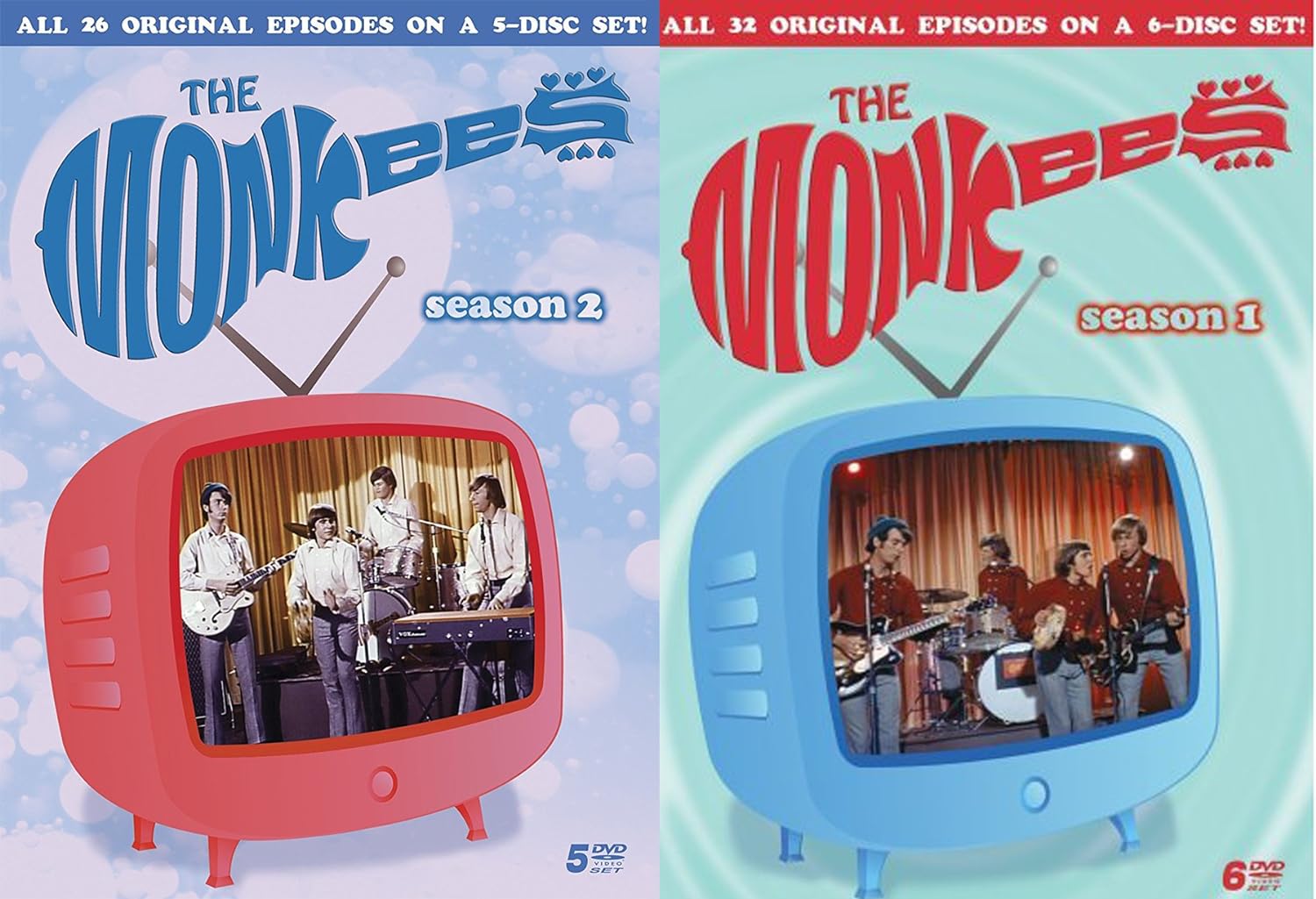 |
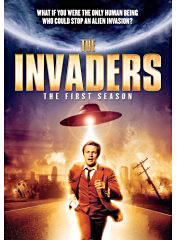 |
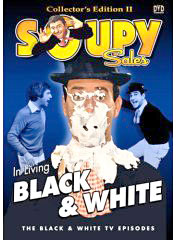 |
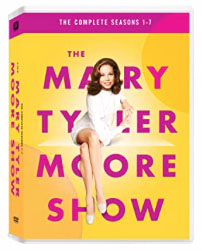 |
 |
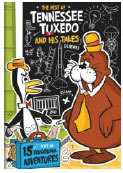 |
|
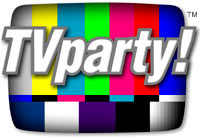 |
|
TV
on DVD/ / / / / / /
TV Show Reviews / /
/ / / / / Punk Book/ / / / TV Shows on Blu-Ray/ / / / / Holiday
Specials on DVD / /
/ / / / Classic
Commercials / / / / / / Classic
TV Blog |
|
Looking
for classic TV DVDs?/See below: |
||
| TV Commercials on DVD | Wrestling DVDs | Classic TV Books |